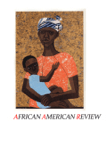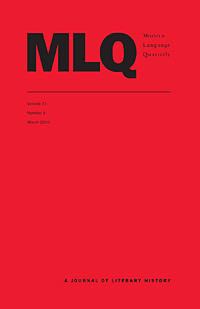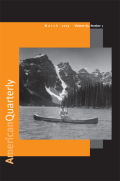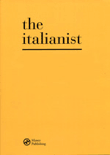
UNIVERSITY OF TORONTO QUARTERLY
Scope & Guideline
Exploring the intersections of history, literature, and culture.
Introduction
Aims and Scopes
- Interdisciplinary Literary Studies:
The journal explores literature through various lenses, including cultural studies, feminist theory, postcolonialism, and queer theory, promoting interdisciplinary dialogue among scholars. - Cultural and Historical Analysis:
Papers often address historical contexts and cultural movements, examining how literature and art reflect and shape societal norms and values. - Focus on Canadian Content:
A significant emphasis is placed on Canadian literature and cultural production, highlighting the unique narratives and voices that contribute to the national identity. - Social Justice and Activism:
The journal frequently engages with themes of social justice, exploring how literature and art can serve as tools for activism and critical reflection on societal issues. - Ecocriticism and Environmental Studies:
There is a growing interest in ecocritical approaches that investigate the relationship between literature, culture, and the environment, reflecting contemporary concerns about climate change and ecological degradation.
Trending and Emerging
- Digital Humanities:
An increasing number of papers are exploring the intersection of literature and digital technologies, emphasizing how digital tools can enhance literary scholarship and public engagement. - Indigenous Studies and Decolonization:
There is a growing focus on Indigenous literature and narratives, alongside discussions of decolonization, reflecting a commitment to amplifying marginalized voices and perspectives. - Intersectionality in Cultural Studies:
Emerging research highlights the importance of intersectionality in understanding identities and experiences across gender, race, sexuality, and class, leading to richer and more nuanced analyses. - Crisis Literature and Representation:
Recent publications are increasingly addressing themes related to social crises—such as climate change, pandemics, and political upheaval—examining how literature responds to and represents these challenges. - Globalization and Transnational Studies:
The journal is increasingly publishing works that explore globalization's impact on literature and culture, emphasizing the interconnectedness of global narratives and identities.
Declining or Waning
- Traditional Historical Narratives:
There has been a noticeable decrease in papers focusing solely on traditional historical narratives, as scholars increasingly seek interdisciplinary and innovative approaches that challenge established historical accounts. - Formal Literary Criticism:
The journal has seen a reduction in articles that engage strictly with formalist literary criticism, as contemporary scholarship tends to favor more contextualized and politically engaged analyses. - Eurocentric Perspectives:
Papers that primarily center on Eurocentric literary traditions are becoming less frequent, as the journal increasingly prioritizes diverse global perspectives and voices. - Static Gender Roles in Literature:
Discussions around static and traditional gender roles in literature are less prevalent, giving way to more dynamic and intersectional analyses that consider multiple identities and experiences.
Similar Journals

LITTERATURES
Unveiling the Layers of Literary MeaningLITTERATURES is a distinguished academic journal dedicated to the exploration of literature and literary theory, published by UNIV TOULOUSE MIRAIL. With its ISSN 0563-9751, this journal provides a platform for innovative research and critical analysis in the humanities, particularly within the field of literature. Although currently not indexed with an official e-ISSN and with a history of coverage discontinued from Scopus from 2004 to 2015, LITTERATURES continues to contribute valuable insights and scholarly discourse in contemporary literary studies. Researchers will find its publications vital for examining the intersections of literary theory and practice, while students and professionals can benefit from its rigorous academic contributions. While the journal's Scopus rank places it within the 14th percentile among literature journals, its focus on French and international literature enriches the global literary landscape and encourages meaningful scholarly exchange. The journal is based in Toulouse, France, and invites contributions that challenge existing paradigms and inspire new interpretations within the realm of literature.

LIBERTE
Unpacking Complex Narratives Through Scholarly InquiryLIBERTE is a distinguished academic journal that serves as a platform for critical thinking and scholarly discourse across various fields including Literature and Literary Theory, Philosophy, Sociology and Political Science, and Visual Arts and Performing Arts. Established in Canada and published by LIBERTE, this journal aims to foster intellectual exchange and explore the nuances of cultural and social narratives. Although it currently falls in the Q4 quartile across its categories, it is dedicated to advancing the conversation in the arts and humanities, providing a rich resource for researchers, educators, and students alike. With an ISSN of 0024-2020 and an active publication cycle running from 2002 to 2024, LIBERTE welcomes contributions that challenge prevailing ideologies and reflect innovative perspectives. While the journal is not open access, its value in promoting academic inquiry within its communities cannot be overstated.

CONTEMPORARY FRENCH AND FRANCOPHONE STUDIES
Fostering Critical Engagement with Modern Francophone ThemesCONTEMPORARY FRENCH AND FRANCOPHONE STUDIES is a prestigious academic journal published by Routledge Journals, Taylor & Francis Ltd, focusing on the vibrant fields of French and Francophone literature, culture, and history. With an ISSN of 1740-9292 and an E-ISSN of 1740-9306, this journal serves as a vital platform for interdisciplinary research, highlighting innovative scholarship from 1997 through 2024. Recognized for its contributions to Cultural Studies, History, Literature and Literary Theory, and Visual Arts and Performing Arts, it holds a Q3 ranking in these categories as of 2023, indicating its solid reputation among peers. The journal is dedicated to fostering a deeper understanding of contemporary societal themes through the lens of Francophone perspectives, providing valuable insights for researchers, professionals, and students alike. It is crucial for those looking to engage critically with current trends and influences shaping the Francophone world.

REVISTA DE OCCIDENTE
Exploring the Depths of Culture and History.REVISTA DE OCCIDENTE, published by the FUNDACION JOSE ORTEGA Y GASSET, is a distinguished scholarly journal based in Spain that explores a myriad of topics within the realms of Cultural Studies, History, Literature and Literary Theory, and Visual Arts and Performing Arts. With its ISSN 0034-8635, the journal has made significant contributions to the discourse in these fields from its established years of convergence spanning from 2002 to 2004 and 2007 to the present. Although designated in the lower quartiles of the Scopus rankings, with notable distinctions in Q4 and Q3 categories as of 2023, REVISTA DE OCCIDENTE is recognized for its commitment to fostering critical dialogue and interdisciplinary research. Readers can delve into rich analyses and diverse perspectives that engage with contemporary cultural phenomena and historical narratives, aiming to enrich academic pursuits and professional practice. Located at REVISTA DE OCCIDENTE, FORTUNY 53, 28010 MADRID, SPAIN, the journal seeks submissions from scholars worldwide eager to contribute to its mission, despite operating under a traditional access model, thus ensuring content rigor and quality.

AFRICAN AMERICAN REVIEW
Bridging Cultures Through Critical ScholarshipAFRICAN AMERICAN REVIEW, published by the Johns Hopkins University Press, stands as a pivotal journal since its inception, dedicated to exploring the multifaceted aspects of African American literature, culture, and artistic expression. With an ISSN of 1062-4783 and an E-ISSN of 1945-6182, this journal provides a critical platform that delves into the rich tapestry of African American experiences, bridging gaps across literary, cultural, and visual arts disciplines. Its latest impact metrics position it in esteemed quartiles, achieving Q2 rank in both Literature and Literary Theory and Visual Arts and Performing Arts, alongside a strong presence in Cultural Studies with a Q3 classification. The journal’s commitment to high-quality scholarship is reflected in its Scopus rankings, drawing attention from researchers and scholars invested in cultural narratives and historical contexts. Although not currently open access, the journal's comprehensive analyses contribute significantly to discussions in academia and beyond, making it an essential resource for researchers, educators, and students alike looking to deepen their understanding of African American contributions to the arts and humanities.

MODERN LANGUAGE QUARTERLY
Pioneering New Perspectives in Literary Studies.MODERN LANGUAGE QUARTERLY, published by DUKE UNIVERSITY PRESS, stands as a premier journal in the field of Literature and Literary Theory, recognized for its intellectual rigor and scholarly contributions. With an impressive Scopus ranking of #156 out of 1106 in its category, the journal showcases an 85th percentile standing, indicating its significant impact within the academic community. The journal, with ISSN 0026-7929, focuses on critical analysis, literary theory, and the intersection of language and culture, making it an essential resource for researchers, professionals, and graduate students alike. As it converges from 1996 to 2024, MODERN LANGUAGE QUARTERLY continues to uphold its tradition of excellence in literary scholarship, contributing to the advancement of knowledge and fostering a deeper understanding of literature's role in society. With its Q1 ranking in 2023, this journal represents the forefront of literary studies, providing a vibrant forum for the exchange of ideas and innovative research in the humanities.

NEOPHILOLOGUS
Elevating Academic Standards in Linguistics and LiteratureNEOPHILOLOGUS, published by Springer, stands as a pivotal journal in the fields of Linguistics and Language as well as Literature and Literary Theory. With an illustrious history dating back to 1916 and continuing through various phases until 2024, this journal has entrenched itself as a crucial platform for scholarly discussion and research dissemination. NEOPHILOLOGUS is recognized for its high academic standards, as evidenced by its impressive category quartiles, ranking in the Q2 tier for Linguistics and Language and Q1 for Literature and Literary Theory as of 2023. Notably, it ranks in the 81st percentile for Arts and Humanities in the Scopus database, underscoring its significant contribution to the humanities discourse. While the journal does not currently offer open access options, it remains a valuable resource for researchers, professionals, and students seeking in-depth analyses and insights within its specialized domains. Based in Dordrecht, Netherlands, NEOPHILOLOGUS invites contributions that advance our understanding of linguistic and literary phenomena, ensuring its relevance and impact in these dynamic fields.

AMERICAN QUARTERLY
Unveiling Critical Theories that Shape Our Cultural LandscapeAMERICAN QUARTERLY, published by Johns Hopkins University Press, stands as a prestigious journal in the fields of Cultural Studies and History, reflecting its remarkable reputation with a Q1 ranking in both categories as of 2023. With an ISSN of 0003-0678 and an E-ISSN of 1080-6490, this journal serves as a vital platform for interdisciplinary scholarship, exploring diverse narratives and critical theories that shape the American experience. Although it does not currently offer open access, AMERICAN QUARTERLY remains an essential resource for researchers, professionals, and students committed to understanding the complexities of cultural and historical dynamics. Its rich interdisciplinary approach and rigorous peer-review process ensure that the journal consistently publishes high-quality articles that resonate with contemporary global discussions, making it indispensable for anyone looking to contribute to or enhance their understanding of American culture and history.

Italianist
Unveiling the Rich Tapestry of Italian StudiesItalianist is a distinguished peer-reviewed journal published by Routledge Journals, Taylor & Francis Ltd, focusing on the multifaceted aspects of Italian culture, history, and anthropology. With a proud history spanning from 1981 to 2001 and then again from 2003 to 2024, this journal caters to a global audience of scholars, professionals, and students seeking to deepen their understanding of Italian studies. Although it currently operates without an open access option, it provides invaluable insights that contribute to critical discourse in the field, evidenced by its rankings in Scopus: Q4 in Anthropology and Q3 in History, demonstrating its growing influence among academics. The journal is based in the United Kingdom and strives to promote high-quality research that explores historical narratives, cultural practices, and anthropological themes related to Italy, making it an essential resource for anyone interested in this rich and vibrant area of study.

Litera-Journal of Language Literature and Culture Studies
Fostering Critical Voices in Language StudiesLitera - Journal of Language Literature and Culture Studies is a pioneering open-access journal published by the esteemed Istanbul University, Faculty of Letters, since 2017, dedicated to the in-depth exploration and critical analysis of language, literature, and cultural studies. With an ISSN of 1304-0057 and an E-ISSN of 2602-2117, the journal aims to foster a diverse discourse within the arts and humanities, particularly in literature and literary theory, linguistics, and cultural studies. Although it currently holds a modest Scopus rank among its peers, it serves as a valuable platform for emerging scholars and seasoned researchers alike, aiming to enhance understanding and appreciation of cultural narratives within the global context. The journal provides a unique opportunity for authors and readers to engage with original research, critical reviews, and creative works that are vital to the advancement of interdisciplinary studies. Based in Istanbul, Turkey, it is positioned at the heart of cultural exchange, making it a significant contributor to scholarly communication in the region and beyond.